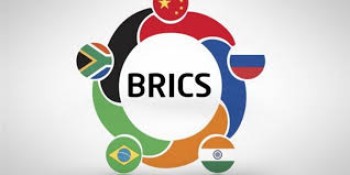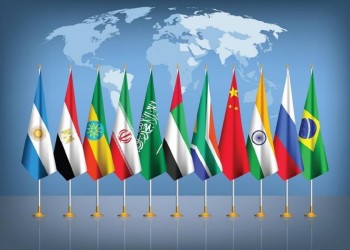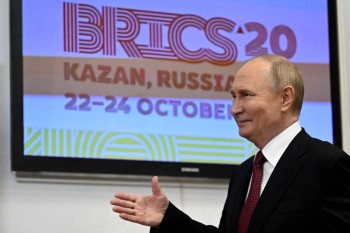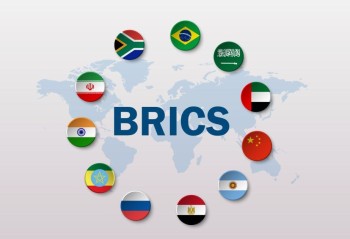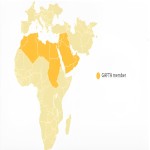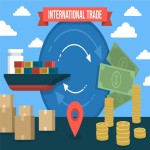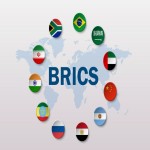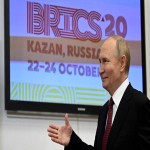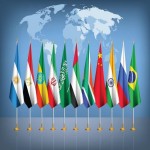The Evolution of BRICS: A Unique Coalition of Emerging Economies
Originally formed as “BRIC” (Brazil, Russia, India, China) and later expanded to include South Africa, BRICS represents a distinctive alliance of emerging economies that collectively serve as a significant counterbalance to established Western economic powers. Despite their shared identity, the member countries are markedly diverse. Geographically, they span multiple continents, with Russia and China sharing a lengthy border, as do China and India. Their civilizations differ greatly, with Brazil, India, and South Africa shaped heavily by colonial histories. Economically, China stands out as a leading exporter of manufactured goods, while India is emerging as a powerhouse in international services. In contrast, Brazil, South Africa, and Russia primarily export raw materials.
Economic Cooperation and Challenges
The concept of economic cooperation among BRICS nations is not merely theoretical; various initiatives are already in progress. For example, discussions are underway regarding the creation of joint infrastructure aimed at enhancing trade, including commodity exchanges and logistics centers. The energy sector, in particular, offers substantial opportunities for collaboration. As significant energy exporters, Russia and Brazil are coordinating efforts with major importers like China and India to establish more stable and predictable markets. Proposals for a joint commodity exchange align with their objectives to gain greater autonomy from fluctuations in Western markets.
However, the pursuit of free trade agreements within BRICS poses practical challenges. While trade liberalization could potentially strengthen economic ties, it also risks intensifying competition in domestic markets, which may threaten entire industries in some member states. Consequently, a more viable approach currently being explored involves multilateral cooperation, where national governments support exports through fiscal and credit subsidies, export insurance, and other measures.
Looking ahead, further initiatives could deepen economic cooperation within BRICS, including the full realization of joint infrastructure projects and the development of active industrial policies that incorporate tax incentives, preferential loans, and protectionist measures to nurture key industries and diversify the economic structures of member nations.
Neoclassical economic policies favored by Russia, Brazil, and South Africa—characterized by deregulation and a focus on market-driven growth—aim to stimulate economic growth and enhance competitiveness. However, these policies have often led to challenges such as income inequality and limited industrial diversification, creating “poverty traps” where growth stagnets and the benefits of liberalization do not reach broader segments of the population.
In these countries, developmental institutions frequently struggle due to issues like corruption, undermining efforts to tackle fundamental economic problems. Challenges such as increasing gross capital formation and diversifying economic structures continue to limit long-term growth potential.
Brazil’s Ambitions within BRICS
Brazil views BRICS as a strategic platform to enhance its global influence, particularly in pursuit of a permanent seat n the United Nations Security Council (UNSC). The country’s economic agenda within BRICS focuses on diversifying trade partnerships and attracting investments to drive growth. By aligning with other emerging economies, Brazil aims to strengthen its bargaining power in international forums and reduce dependence on Western markets.
Additionally, Brazil leverages its BRICS membership to advance sustainable development, particularly regarding the United Nations’ Sustainable Development Goals (SDGs). Initiatives addressing SDG 1 (No Poverty) and SDG 2 (Zero Hunger), such as “Bolsa Família” and “Fome Zero,” have significantly reduced poverty and hunger domestically. These programs have been showcased in BRICS discussions as models for other emerging economies.
Brazil has also been a staunch advocate for integrating SDG 13 (Climate Action) into BRICS’ agenda. The country’s commitment to reforestation and sustainable agriculture is evident through its leadership of the Amazon Fund, which has garnered over $1 billion from international donors to combat deforestation. Brazil’s focus on sustainable energy is reflected in its investments in biofuels, particularly ethanol production, making it one of the world’s largest producers and contributing to global carbon reduction efforts.
Furthermore, Brazil pushes for collaborative efforts within BRICS to address environmental challenges, aligning with its commitment to the Paris Agreement. The establishment of BRICS Environment Ministers’ meetings has led to coordinated action plans focused on biodiversity conservation and pollution control. This stance not only enhances Brazil’s international reputation but also aligns with its broader goal of securing a leadership role in global governance.
Russia’s Strategic Interests in BRICS
Russian President Vladimir Putin regards BRICS as a cornerstone of Russia’s foreign policy. He has emphasized the group’s role in promoting a multipolar world order as a counter to Western hegemony. For Russia, BRICS serves as a crucial platform for fostering economic ties, technological exchanges, and political collaboration, all vital for its long-term strategic interests.
Russia views BRICS as a strategic counterbalance to Western dominance. It provides an avenue to diversify economic partnerships and mitigate the impacts of Western sanctions. Driven by its vast energy resources, Russia seeks to export energy to BRICS nations, particularly China and India. The proposal for a joint commodity exchange aligns with Russia’s goals of establishing stable markets for its energy exports, while enhancing cooperation in science, technology, and defense strengthens its geopolitical influence.
The Impact of the Ukraine Conflict
The ongoing conflict in Ukraine and resulting Western sanctions have profoundly impacted Russia’s economy. By participating in BRICS, Russia aims to circumvent these sanctions by bolstering economic ties with fellow member states. This includes increasing energy exports to China and India, both of which have maintained a politically neutral stance regarding the conflict. The sanctions have prompted Russia to pivot towards Asia, deepening its integration with other BRICS economies.
Moreover, the global energy crisis sparked by the Ukraine war has underscored BRICS’ importance as a mechanism for economic resilience. As Europe seeks to reduce its reliance on Russian energy, BRICS offers Russia a stable market for its exports, helping to stabilize its economy and reinforcing the coalition's strategic significance in global energy dynamics.
China and India: Balancing Cooperation and Competition
As the two largest economies within BRICS, China and India maintain a complex relationship characterized by both cooperation and competition. While they collaborate within the BRICS framework, their geopolitical rivalry, especially along their shared border, presents challenges to deeper integration. Nonetheless, both nations recognize the strategic value of BRICS in amplifying their voices in global affairs and counterbalancing Western influence.
China’s Belt and Road Initiative (BRI) aligns with BRICS objectives, enhancing infrastructure connectivity and economic integration among member states. India’s participation in BRICS is driven by its desire to assume a more significant role in global governance and leverage economic partnerships for domestic development. Despite their differences, China and India remain committed to the BRICS vision, understanding that their collective influence can reshape global economic and political landscapes.
South Africa’s Role in BRICS
As the smallest economy in BRICS, South Africa plays a vital role as the gateway to Africa. The country views BRICS as an opportunity to strengthen economic and political ties with fellow members and the broader African continent. South Africa has been instrumental in advocating for the inclusion of African issues in the BRICS agenda, focusing on infrastructure development, poverty alleviation, and health.
One of South Africa’s key contributions to BRICS is its leadership in the BRICS Vaccine Research and Development Centre, established during the COVID-19 pandemic to enhance vaccine production and research among member nations. Additionally, South Africa has benefited from BRICS cooperation through the New Development Bank (NDB), financing several infrastructure projects, including renewable energy initiatives.
South Africa also sees BRICS as a platform to advance the African Union’s Agenda 2063, which aims for sustainable development and economic integration across the continent. By aligning its national goals with BRICS initiatives, South Africa seeks to attract investment, create jobs, and promote economic growth while amplifying Africa’s voice in global governance.
The Future of BRICS: Challenges and Opportunities
The future of BRICS depends on its ability to navigate internal differences and external pressures. While the group has made strides in establishing institutions like the New Development Bank (NDB) and the Contingent Reserve Arrangement (CRA), it must address governance, transparency, and mutual trust issues to enhance its effectiveness.
To reach its full potential, BRICS member states need to prioritize collaborative initiatives that align with national interests while advancing collective goals. This includes fostering innovation, enhancing trade and investment flows, and promoting sustainable development. The geopolitical landscape, marked by the rise of populism, trade wars, and regional conflicts, presents both challenges and opportunities for BRICS to assert its relevance and drive positive change in global governance.
The diversity of BRICS member states and their differing policies poses a challenge, yet this diversity is what makes BRICS a unique and potentially transformative coalition. By leveraging their collective strengths and addressing weaknesses, BRICS countries can play a crucial role in shaping a more inclusive and multipolar world order.
In this context, the BRICS+ initiative, which seeks to expand the coalition by including emerging economies like Egypt, Ethiopia, Iran, Saudi Arabia, and the United Arab Emirates, reflects the need for greater inclusivity and collaboration in tackling global challenges.
The expansion to BRICS+ could enhance the coalition’s strategic and economic influence by integrating countries with complementary strengths and interests. However, the increased diversity may also exacerbate existing differences in political systems, economic models, and developmental priorities. Effective governance structures and mechanisms for conflict resolution will be essential to manage these complexities and maximize BRICS’ potential while minimizing challenges for its members and the broader multilateral system.
Dr. Johnatan Santos is a member of the Department of Theory and History of International Relations at RUDN University, a Ph.D. researcher at the Nucleus of Research of Environmental Displaced People (NEPDA/UEPB) in Brazil, and a fellow seminarist at the Institute of Latin American Studies of the Russian Academy of Sciences.

